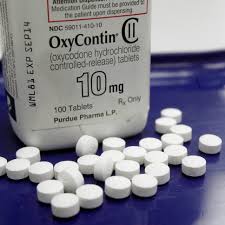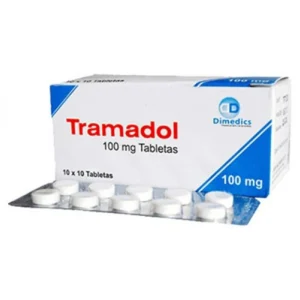Buy Codeine Syrup 60 mg Online
Codeine syrup is a widely used medication for treating mild to moderate pain, as well as alleviating cough and symptoms of upper respiratory infections. As an opioid, codeine is effective in providing relief but also carries risks that necessitate careful management and supervision. This comprehensive guide will delve into the alternative names for codeine syrup, its recommended dosages, common side effects, and overall benefits.
Codeinsirup ist ein weit verbreitetes Medikament zur Behandlung leichter bis mittelschwerer Schmerzen sowie zur Linderung von Husten und Symptomen von Infektionen der oberen Atemwege. Als Opioid lindert Codein wirksam, birgt jedoch auch Risiken, die eine sorgfältige Behandlung und Überwachung erfordern. Dieser umfassende Leitfaden befasst sich mit den alternativen Namen für Codeinsirup, den empfohlenen Dosierungen, häufigen Nebenwirkungen und den Gesamtvorteilen.
Other Names and Forms
Codeine syrup is known by various brand names and is available in different formulations, often combined with other medications to enhance its therapeutic effects:
- Generic Name: Codeine phosphate or codeine sulfate, depending on the salt form.
- Brand Names:
- Promethazine with Codeine: Often used as a cough syrup.
- Tylenol with Codeine: A combination of acetaminophen and codeine for pain relief.
- Robitussin AC: A combination of guaifenesin and codeine for cough suppression.
- Cheratussin AC: Another common brand combining codeine with guaifenesin.
Codeine is also available in tablet and capsule forms, but the syrup formulation is particularly effective for cough suppression and managing symptoms of respiratory infections.
Dosage Guidelines
The dosage of codeine syrup must be carefully determined based on the patient’s age, medical condition, and response to treatment. It is crucial to follow the prescribed dosage to avoid the risk of side effects and potential for addiction.
For Cough and Upper Respiratory Infections
- Adults:
- Typical dosage: 10 to 20 mg of codeine every 4 to 6 hours as needed.
- Maximum dose: Should not exceed 120 mg of codeine in 24 hours.
- Children (6 to 12 years):
- Typical dosage: 5 to 10 mg of codeine every 4 to 6 hours as needed.
- Maximum dose: Should not exceed 60 mg of codeine in 24 hours.
For Pain Relief
- Adults:
- Typical dosage: 15 to 60 mg of codeine every 4 to 6 hours as needed.
- Maximum dose: Should not exceed 360 mg of codeine in 24 hours.
- Children (6 to 12 years):
- Typical dosage: 5 to 10 mg of codeine every 4 to 6 hours as needed.
- Maximum dose: Should not exceed 60 mg of codeine in 24 hours.
Administration
- Oral Administration: Codeine syrup should be taken by mouth, with or without food. It is important to use a proper measuring device to ensure the correct dose.
- Storage: Store at room temperature, away from light and moisture. Keep out of reach of children to prevent accidental ingestion.
Common Side Effects
As with any medication, codeine syrup can cause side effects. Awareness of these effects is crucial for managing them effectively and seeking medical attention when necessary.
Mild to Moderate Side Effects
- Drowsiness: One of the most common side effects, which can impair the ability to drive or operate machinery.
- Dizziness: Patients may feel lightheaded, particularly when standing up quickly.
- Constipation: A frequent issue with opioids, which can be managed with dietary adjustments and laxatives if necessary.
- Nausea and Vomiting: Gastrointestinal discomfort is common, though it typically subsides with continued use.
- Dry Mouth: Common but manageable with increased fluid intake.
- Sweating: Excessive sweating can occur but is usually not severe.
Severe Side Effects
- Respiratory Depression: High doses or prolonged use can lead to significant respiratory depression, which can be life-threatening.
- Dependence and Addiction: Codeine has a high potential for dependence and addiction. It should be used with caution, particularly in patients with a history of substance abuse.
- Severe Allergic Reactions: Symptoms can include rash, itching, swelling, severe dizziness, and difficulty breathing. Immediate medical attention is necessary.
- Confusion and Hallucinations: These can occur, particularly in elderly patients or those with renal impairment.
- Severe Constipation: Chronic use can lead to severe constipation and bowel obstruction.
Overall Benefits
Despite its potential side effects, codeine syrup offers several significant benefits, particularly when used appropriately under medical supervision.
Benefits in Pain Management
- Effective Pain Relief: Codeine is highly effective in treating mild to moderate pain, making it a valuable tool in pain management.
- Combination Formulations: When combined with other medications like acetaminophen or guaifenesin, codeine’s effectiveness is enhanced, providing comprehensive relief from pain and respiratory symptoms.
Benefits in Cough Suppression
- Reduction of Cough Reflex: Codeine is effective in suppressing the cough reflex, providing relief from persistent coughing that can disrupt sleep and daily activities.
- Symptomatic Relief: Provides significant relief from symptoms of upper respiratory infections, helping patients feel more comfortable.
Mechanism of Action
Codeine works by binding to opioid receptors in the brain and spinal cord, altering the perception and response to pain. It also acts on the cough center in the brain to suppress the cough reflex. This dual action makes it effective for both pain relief and cough suppression.
Comparisons with Other Opioids and Cough Suppressants
Codeine vs. Hydrocodone
- Potency: Hydrocodone is generally considered more potent than codeine, making it suitable for more severe pain.
- Side Effect Profile: Both have similar side effects, but hydrocodone has a higher potential for addiction and respiratory depression.
Codeine vs. Dextromethorphan
- Mechanism of Action: Dextromethorphan is a non-opioid cough suppressant that acts on the brain’s cough center but does not have the analgesic properties of codeine.
- Safety Profile: Dextromethorphan has a lower risk of dependence and side effects compared to codeine, making it a safer option for cough suppression in many cases.
Conclusion
Codeine syrup is a versatile medication that offers effective relief for mild to moderate pain and persistent cough associated with upper respiratory infections. While it provides significant benefits, including potent analgesic and antitussive effects, it also carries risks of side effects and dependence. Proper dosage management and medical supervision are essential to maximize the benefits and minimize the risks associated with codeine syrup. With responsible use, codeine syrup can be a valuable component of pain and cough management, improving the quality of life for many patients.





Reviews
There are no reviews yet.